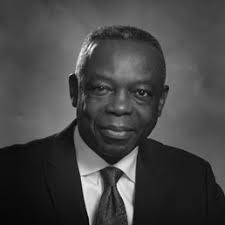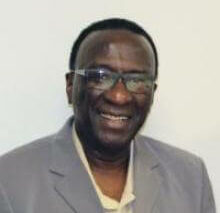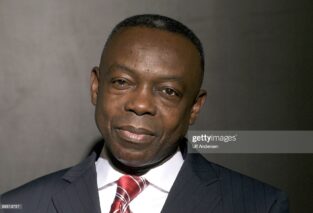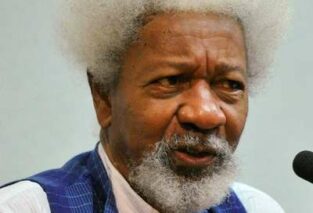
Controversial Cameroonian economist, Celestin Monga, who is known for his outspoken views on political and economic issues, warns that merely getting rid of his country’s long-serving and stay-put president, Mr. Paul Biya, would not automatically cure Cameroon of its ills. It would take much more than just a change of guards at the presidential palace at Etoudi to bring any meaningful change to his country. The system itself will have to be thoroughly over-hauled before the Cameroonian people could start to breathe a sigh of relief after all these years of Mr. Biya’s misrule. He kick-starts this interview with a brief discussion of some of his writings that fall outside his habitual domain of economics and politics.
Mr. Monga, you seem to be also involved in writing outside your field of politics and economics. You surprised many people with your recent collection of poems, Fragments d’un crépuscle blessé. I was struck by the astonishing effect of the juxtaposition of words and images. Absolutely depressing but beautifully executed pictures in black and white from South Africa.
I should say here that it isn’t a book about South Africa. It’s a book about Africa, period. You don’t need to go to South Africa to see the scenes depicted in those pictures. Just go down to New Bell, a few miles from here, and you’ll see the police brutalising helpless citizens the same way the police do to blacks in South Africa; you’ll see there poor, hungry people sleeping in gutters. The idea to place pictures and words face-to-face came from my Congolese friend, the novelist Sonny Labou Tansi, who wrote the “Foreword” to that book. I was happy he brought up that idea because I was impressed by the quality of those pictures and I wanted to add a few words to them as a way of expressing my sensitivity to the plight of the oppressed everywhere in Africa. The way we react to our Pygmy population in this country, for instance, is no different from the way whites react to blacks in South Africa. That’s the message I wanted to get across.
You’ve published another book, this time about your travels in Djibouti entitled Un Bantou à Djibouti. I was considerably shocked by the barrenness of the land. One has the impression that the country is a massive wasteland and this depressing picture is made all the more poignant by the astonishingly revolting picture you paint of the fate of the Djiboutian woman, especially the excision of little girls. Was that a deliberate attempt to shock your readers?
I believe if you want to be realistic in Africa, you’re bound to shock people. There are no two ways out of it. This book was banned in Djibouti and the government of that country has written very hostile articles against me in the press. That was really funny. How can the government of Djibouti ban a book written by a Cameroonian? I have no intention of taking over power in Djibouti.
Why did you go to Djibouti of all places?
I wanted to take a short holiday and travel in Africa. I have a few friends in Djibouti I’d known from my student days in Bordeaux and Paris. They invited me to their country and I went with my notebook and what you have there is the result of the entries from that notebook.
Let’s come back home. How do you see Cameroon after Mr. Paul Biya?
What I’ll like to get across is that the problems of our country today are not only the problems of an individual. Let’s not for once imagine that as soon as Biya is no longer ruling this nation, our worries would end overnight. Far from it. Cameroon will not automatically become a paradise on earth simply because Biya is no longer ruling this land. Every Cameroonian, in short, every African today, must open his or her eyes and clearly assess the challenges of the moment as a way of preparing for a better tomorrow. The main challenge of the moment is to change the mentality of our people, make them understand that Cameroon is not just one huge cake which anyone can just chop up a huge chunk and walk away with. No! Cameroon is our land and we have the obligation to make it a place our children will like to live in. That’s the first thing I’ll like to say.
The second thing is that the tremors of the dramatic changes brought about by the marvels of information technology have not only affected the Western world but Africa as well. The changes are so tremendous that we, as Africans, risk losing our own identity. That is why it is important for us to remember the likes of Kwame Nkrumah, Haile Selassie, Julius Nyerere, among others, people who had a vision of a united Africa. That’s the only way we are going to survive in the world of tomorrow. I cannot boast of a developed Cameroon when countries next door, Gabon, Central Africa or Chad, are not developed. When I travel anywhere in Africa, I consider myself a citizen of the country in which I happen to find myself. When I wrote about Djibouti, I was actually writing about my own country, Cameroon, and my people. I never consider, for example, a Nigerian as a stranger in this country. That’s ridiculous. We are one and it’s only in such oneness that we will survive in the world of tomorrow.



